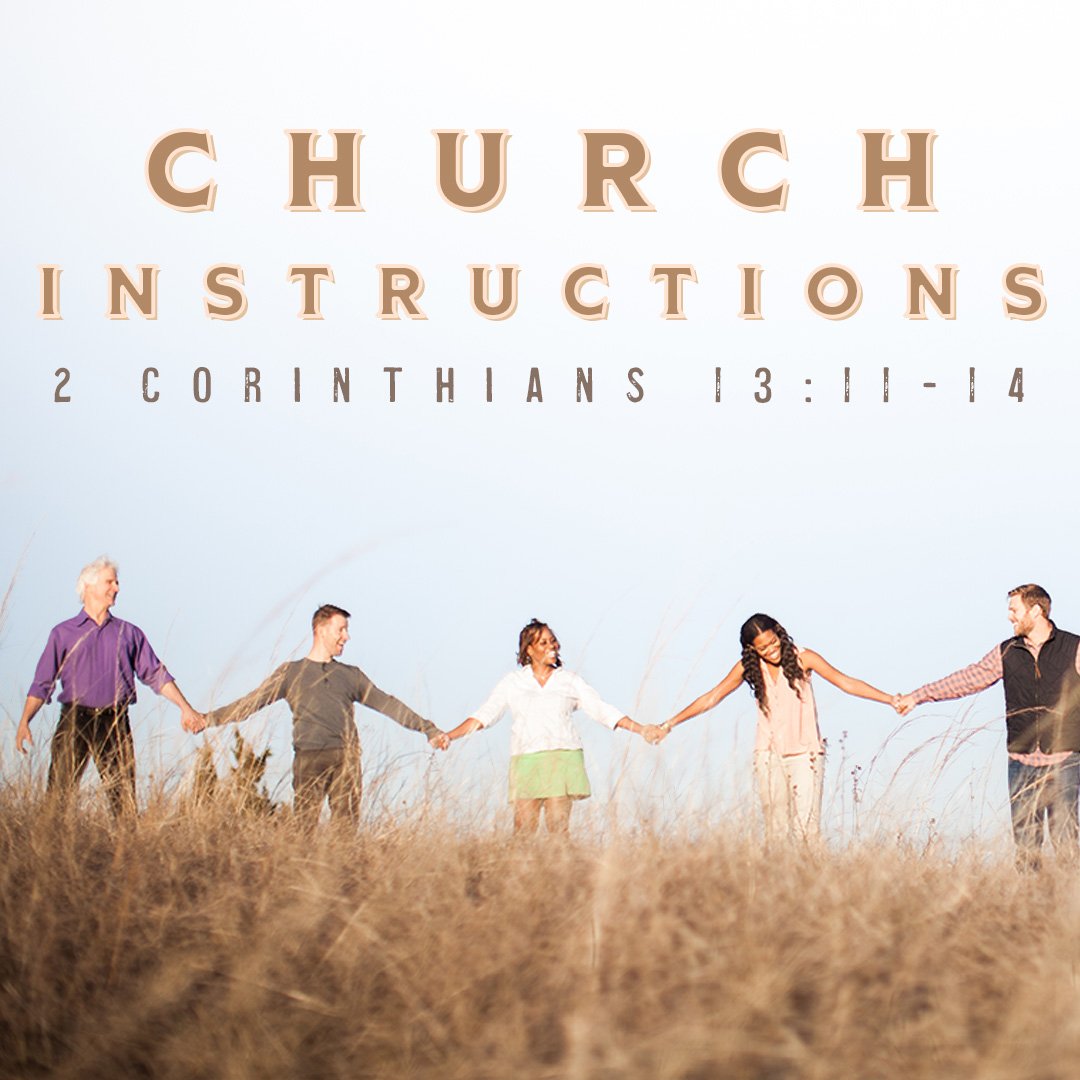All for the Kingdom
Sermon Podcast
Above Every Name: Jesus - The Hope of Salvation, Isaiah 9:7, 1 Thessalonians 5:8-11
The gospel of Matthew (2:20-23) tells us that God sent an angel to Joseph in a dream to tell him that the child that Mary was carrying was conceived by the Holy Spirit. The angel also instructed Joseph that the son Mary would bear would be named Jesus because "he will save his people from their sins." The name Jesus is a Greek transliteration of the Hebrew name Joshua, which means the Lord saves.
The New Testament celebrates the fulfillment of Isaiah's prophetic promise. One of the earliest books in the New Testament is 1 Thessalonians. In chapter 5, Paul gives instructions for how Christians are to live in the context of a wicked and broken world. Specifically, Christians are to live in a posture of expectation of the imminent return of Jesus.
The connection between Isaiah 9:7 and 1 Thessalonians 5 is one of timing and perspective. Isaiah is looking forward to the day that the Messiah will come. Paul, writing to the Thessalonians, is rejoicing that Jesus the Messiah has come and is looking forward to when he will return. Isaiah looks forward to the Messiah coming to establish his kingdom. Paul is rejoicing that the kingdom of God has come and is looking forward to the day when the fullness of it is known.
From these two passages, we are encouraged to have a perspective of hope in the promise of salvation that enables us to persevere in the present.
Above Every Name: Everlasting Father Prince of Peace, Isaiah 9:6, 1 Corinthians 15:54-57
The last two names listed in Isaiah 9:6 for the Messiah are Everlasting Father and Prince of Peace. These two names point to the eternal nature of the Messiah and the work of redemption he has accomplished.
In 1 Corinthians 15, Paul teaches that the resurrection of Jesus is fundamental to the work of redemption and celebrates the victory over sin and death that Jesus' resurrection has brought. The redemption of Jesus provides eternal salvation and eternal peace to those who believe in faith in Jesus.
Above Every Name: Wonderful Counselor Mighty God, Isaiah 9:6, John 14:6
Isaiah declares that Jesus will be called – wonderful counselor and mighty God. Wonderful counselor acknowledges that the Messiah will be one who reveals the glorious truth of God, and Mighty God declares that he is God and exercises the power of God. The Messiah will be God, revealing the truth of himself to the world.
In the New Testament, one of the clearest declarations of this comes in John chapter 14. Jesus was encouraging his disciples that he was preparing an eternal dwelling place in his Father's house for those who believe in God and in him. Thomas asked Jesus how they would know the way to his Father's house. Jesus responded that He was the way, the truth, the life, and salvation was only through him.
With this declaration, Jesus made it clear that the hope of the gospel was exclusively through and in himself.
Above Every Name: Immanuel, Isaiah 9:6, Philippians 2:5-11
Isaiah 9:6 is a familiar passage often read during Advent. This Advent season, I will be preaching each sermon from Isaiah 9:6 with attention to the names given to the Messiah.
Today, we consider the first two phrases of the passage: “For to us a child is born, to us a son is given.” In these two phrases, we have a foundational truth of the hope of the gospel declaring the nature of Jesus. Jesus is both and, at the same time, all God and all man. These two natures are united in the person of Jesus. He is all God and all man.
Isaiah prophesied this glorious mystery in Isaiah 9:6 when he declared that unto us would be born a child (man) and a son would be given (God). The gospel of Matthew tells us that God sent an angel to Joseph to declare to him that the baby that Mary conceived was of the Holy Spirit and was the one for whom the prophet Isaiah foretold and would be called Immanuel (which means God with us) (Matthew 1:18-25).
The glorious hope of Christmas is that God came, in the flesh, to redeem us from our sins. The prophet Isaiah declared this future hope, and the New Testament celebrates the fulfillment of this hope. Philippians 2:5-11
teaches this fundamental truth and testifies that Jesus coming in the flesh was an act of grace, a gift of love, and there is hope in the name of Jesus.
Courageous Giving, Mark 12:38-44
In contrast to the celebrated scribes, Jesus draws his disciple's attention to the place where people brought their temple offerings. Their attention was naturally drawn to those making large gifts, but Jesus wanted them to witness something greater.
Jesus pointed to the poor widow's offering as a greater offering in the sight of God, not because of worldly value but because of the heart of worship. From the widow's offering and Jesus' teaching, we find the principles that giving is good, must be sacrificial, and is an act of worship.
Gratitude or Greed, Joshua 7:16-26
The testimony of Achan's sin testifies to the danger of greed and the importance of being thankful for God's provisions. Gratitude and thanksgiving are the responses to God's provision and grace. Greed is the sin of being ungrateful and taking what has not been provided.
This passage teaches us to be thankful for God's provision and honor him with what He provides.
Qualifications for Overseers, 1 Timothy 3:1-7
We generally have a love-hate relationship with qualifications. We rightly desire that those who provide services, like doctors and airline pilots, be well-qualified. And yet, when faced with requirements that restrict something you want to do, your appreciation for the goodness of qualifications drastically wanes. In the current cultural context, where personal autonomy is seen as supremely important, any discussion of disqualifying qualifications is not well received.
The church's well-being, health, and effectiveness are greatly affected by and dependant on the leadership of the church. If the church fails to choose qualified men to serve as overseers, it will soon reap disastrous results
Rediscovering the Office of Overseer, 1 Timothy 3:1
No church is perfectly rightly ordered; however, every church must have a heart to be as rightly ordered and faithful to scripture as possible. 1 Timothy 3 continues the teaching on the proper order of the church and the offices of overseer/ elder/ pastor and deacon. To introduce a biblical understanding of the office of overseer/ elder/ pastor, I will discuss these three areas: the problem (Where we are and how we got here), the terms (rediscovering the terms the Bible uses for those who lead the church), and the office (from 3: 1).
Godly Living for Christian Woman, 1 Timothy 2:9-15
Few subjects are more fraught with difficulty than the issue this text addresses. In our cultural context, it feels awkward at best and dangerous at worst to declare what women should and should not wear, how women should fix their hair, remain quiet in church, and be submissive. The awkwardness of the cultural context does not release the church from preaching such passages and certainly not Christians from obeying what this passage teaches. To faithfully preach the Bible, a pastor must proclaim what the Bible teaches regardless of how well it is received by the culture of the day.
In the second half of 1 Timothy 2, Paul turns his attention to the proper order of the church. In this text, he addresses women's role in the church, particularly in public worship. This text addresses three areas for Christian women: how you present yourself in worship, participate in worship, and honor God's design for women.
Jesus Christ Ransom for All, 1 Timothy 2:3-7
When lives are in danger, the first impulse is to think about how they can be rescued. The most horrifying situations are when there is no hope of saving those in danger. The gospel's good news is that God desires to rescue you and has provided a way for your salvation in Jesus.
Chapter two begins Paul's instructions to Timothy on the proper order of the church. Before addressing these issues, he lays the foundational truths of the church's call to prayer and the forgiveness of sin only in Jesus. In this sermon, I show the good gift of redemption, the desire of God to save, and man's only hope is in Jesus.
Pray, 1 Timothy 2:1-2, 8
Chapter two begins Paul’s instructions to Timothy on the proper order of the church. However, before addressing these issues, he first lays the foundational truths of the church’s call to prayer and the forgiveness of sin that is only in Jesus.
You learned in elementary English class to look for the what, who, how, and why. Likewise, this sermon will focus on the what, who, how, and why of prayer.
Shipwrecked, 1 Timothy 1:18-20
When you travel by ship, there is a moment when you realize that your safety is totally dependent on the integrity of the ship. When the ship leaves the dock, it does so slowly enough that the safety of the land seems to linger and remain within reach. However, as the ship sails further to sea, your sight of land grows smaller and more distant. At the distance of 2.9 miles, any sight of land finally slips beyond your site as the curvature of the earth limits your vision. When any sight of land is lost, and all you can see is water in every direction, is the moment that you realize that your life rests entirely in the ship's ability to reach the next port. As the sun sets and darkness cloaks all but what the ship's lights can illuminate, the feeling of dependency on the ship for safety is made all the more profound.
Paul knew something about shipwrecks. He had experienced near-death experiences in multiple shipwrecks. With these memories in mind, he writes to Timothy a charge to fight the good fight for the gospel and a warning of the grave consequences that come from rejecting the gospel.
Jesus Saves, 1 Timothy 1:12-17
For all the advancements in modern media, the most effective marketing approach has remained unchanged since the creation of time. The most effective and powerful persuasive tactic is personal testimony. It is helpful to hear about all the features of a product and how it could improve your life. However, what will draw your attention and acceptance toward purchasing something is when someone you know says, I use it; it helped me; you should use it too.
In this passage, Paul declares that the primary purpose of Jesus coming in the flesh to earth was to save sinners. In making this point, he shares his personal testimony of salvation, his sin before Christ, and the grace that he has now received. Through his testimony, we see the common depravity all experience, the hope of salvation through Jesus, and the testimony and worship that follows.
The Law is Good, 1 Timothy 1:8-11
Every profession has those who are incompetent, malevolent, or abusive. When you experience unlawful use of authority, a common reaction is to reject the whole. As a result, the reflective response of many today is to tear down institutions rather than work to repair them. A biblical worldview recognizes the sin of the individual while maintaining the goodness of the institution or position.
Paul is responding to the false teachers who were perverting the law of God. They were using the law unlawfully and thus destructively. Paul does not reject the law but affirms it as good when lawfully used for the purposes and glory of God.
Danger Alert, 1 Timothy 1:1-7
No church is perfectly rightly ordered. However, every church must have a heart to be as rightly ordered and faithful to scripture as possible. The church must regularly examine how it is organized and functions and determine if it is most faithful to scripture. Paul's letters to Timothy deal with many of these issues, which is why it is helpful for Christians and churches to return often to these instructive letters.
These letters to the young pastor are Paul's counsel on leading the church in proper worship and establishing proper church leadership. He instructs Timothy on the required qualifications for elders/pastors/overseers and deacons and gives counsel on confronting false teachers and other congregation members.
In these opening words of Paul's first letter to Timothy, he first warns of what threatens the church and recognizes the gift of elders to the church.
Church Instructions, 2 Corinthians 13:11-14
As children leave the house, parents often give short final instructions. These departing words are not new information but reminders of important things. A mom might remind her children of something they need to do while away. A father might remind his children of his expectations of how they should behave while away. And often, parents tell their children one more time that they love them.
These closing words of Paul’s letter are similar words of instructions. These are not new teachings but reminders of important truths.
Genuine Faith, 2 Corinthians 13:5-10
In these closing words of his letter, Paul gives his final words to the church, hoping that the next time they will hear from him will be in person. In the first four verses, Paul encouraged the wayward brothers and sisters to repent of their sin and promised to deal sternly with those who would not. Secondly, in verses 5-10, he pleads with the brothers and sisters to give serious attention to the nature of their relationship with Jesus and the genuineness of their salvation so that they might be sure of their salvation.
Confronting Sin, 2 Corinthians 13:1-4
As Paul concludes his letter, he gives some final warnings and instructions. His final warning can be broken into two parts, confrontation of sin and examining your faith to test if it is genuine. In this sermon, I preach on the first part concerning the confrontation of sin.
Confronting sin and church discipline is something that most Christians know should be happening, but they have not seen a healthy or consistent model of how it happens. And a more honest assessment may be that many Christians have no motivation to faithfully participate in church discipline because they enjoy the lack of accountability in their church.
Understanding this passage and how to confront sin requires understanding three principles of healthy, godly discipline:
Discipline is motivated by love.
Discipline is connected to worth.
Discipline is connected to church fellowship.
Costly Love, 2 Corinthians 12:11-21
The relationship of parent to child is one that Paul uses in this passage and is helpful in understanding the relationship between those who proclaim the gospel and those who receive it. Children do not always appreciate their parents' sacrifices and sometimes even rebel against their parents. What motivates all that parents do for their children is love.
In this passage, the Bible teaches how believers should respond to the gospel, the cost of ministry, and what motivates the preaching of the gospel.
Strength in Weakness, 2 Corinthians 12:7-10
Our sinful nature is quick to take the glory from the blessings and gifts of God for ourselves. We often even claim that they come from us rather than God. Yet, when confronted with our true weakness, we come to know through experience the sufficiency of God’s grace - that His grace is enough.




















